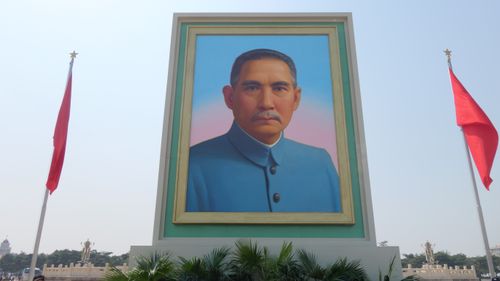China’s Greatest Revolutionary: Sun-Yat Sen in 10 Points
Dec 11, 2023 · 2 mins read
0
Share

Born into a peasant family 1866 in a village in Guangdong province, at 13 Sun joined his older brother in Honolulu. He quickly picked up English and went to high school there.
Save
Share
At 17 he returned briefly to China before going to Hong Kong to complete his schooling, and in 1892 obtained a medical degree from the Hong Kong Medical College.
Save
Share
After China was defeated in the Sino-Japanese War of 1894-95, Sun gave up his medical career in favor of bringing revolution to China.
Save
Share
Following a failed revolt (his childhood friend, revolutionary Lu Hao-tung, was executed by the Qing regime in 1895) he began his life of exile. In London he was kidnapped and brought to the Chinese legation, but escaped thanks to the British Foreign Office.
Save
Share
He toured Europe, studying its political institutions, and it was during this time that he developed his “Three Principles”, later published in the book Three Principles of the People (1925). An excerpt:
Save
Share
“Our problem is to restore our race to its original greatness by reviving the nationalist spirit. We must make every Chinese realize that we, as a people and a nation, are in an extremely critical position in the struggle for existence with other nationalities and Powers.”
Save
Share
Following the Boxer Rebellion in 1900, revolutionary fervor spread in China. At a 1905 meeting in Japan, Chinese revolutionaries and expat Chinese merchants united as the Tongmenghui, and resolved that the country be rid of dynastic rule.
Save
Share
In 1911 the city of Wuchang fell to the revolutionaries, other cities followed, and the Manchu regime fell. In Sun 1916 married his former secretary Song Qingling, who after his death became a key figure in the Kuomintang (Chinese Nationalist Party).
Save
Share
Because Song sided with the communists in China’s Civil War, she would be important in the Chinese Communist Republic after 1950, and served as acting head of state from 1976 to 1978.
Save
Share
Sun-yat Sen died in 1925 in Peking, with the reunification of China in sight. His last words were said to be, “The Revolution is not yet completed. All my comrades must strive on.”
Save
Share
0




